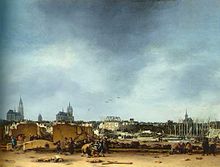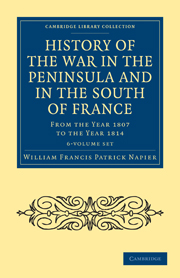 What do John Romilly, the Master of the Rolls who initiated the Rolls Series of historical documents, Gabriel Beranger, whose ‘labours in the cause of Irish art and antiquities from 1760 to 1780’ were memorialised by Oscar Wilde’s father (and are coming soon!), Peter Mark Roget, who wrote the two-volume Bridgewater Treatise on Animal and Vegetable Physiology Considered with Reference to Natural Theology, and I have in common?
What do John Romilly, the Master of the Rolls who initiated the Rolls Series of historical documents, Gabriel Beranger, whose ‘labours in the cause of Irish art and antiquities from 1760 to 1780’ were memorialised by Oscar Wilde’s father (and are coming soon!), Peter Mark Roget, who wrote the two-volume Bridgewater Treatise on Animal and Vegetable Physiology Considered with Reference to Natural Theology, and I have in common?
It is that we were and are all British citizens as a result of the Revocation of the Edict of Nantes by Louis XIV on 18 October 1685. The Revocation is one of those catchy phrases, like the Pragmatic Sanction of 1713, the Defenestration of Prague in 1618, or the Delft Thunderclap of 1654 which hide deep historical significance.

The Defenestration of Prague. That the victims survived is due either to their being wafted to the ground by angels or landing on a nice fat dunghill, depending on your religious/political viewpoint.
The Edict of Nantes (15 April 1598) was part of Henri IV’s attempt to reconcile the deep religious fissures in France which had led to the Wars of Religion, the St Bartholomew’s Eve massacre etc. He became king in 1589, and famously converted to Catholicism in 1593: ‘Paris vaut bien une messe’, and all that. Given that a major part of the edict’s focus was ensuring safe havens for French Protestants in case of need (La Rochelle being the most tragically famous), and that it limited freedom of Protestant worship to very specific areas, it was hardly a glorious example of toleration. But it was better than what most Catholic countries offered at the time, and remained in force for almost a century during which the Huguenots (the name given to French Calvinists is of complicated and unclear origin) became prosperous skilled craftsmen and merchants.
Louis XIV had already indicated his lack of tolerance in 1681, by the so-called ‘dragonnades’, the billeting of (deliberately) ill-disciplined troops in Protestant households, with permission to plunder and wreak whatever havoc they liked upon their hosts. The revocation spelled disaster for the community: Protestant churches and schools were closed, and over the next two decades a diaspora took place to Protestant states all over Europe, to North America and to the Cape Colony in Africa. Needless to say, the Huguenots were not allowed to take any money or property with them, but they did take their skills, as well as their faith.
John Romilly’s father Samuel (1757–1818), lawyer and liberal politician, was born in the Huguenot enclave of Soho in London, the son of Peter Romilly, a jeweller, whose own father, Etienne, had been well-do-do in his native Montpellier but was an unsuccessful wax-bleacher (??) in London. Gabriel Beranger (1729–1817) was born in Rotterdam to an émigré family, and went to Ireland in 1750 to join other family members. Peter Mark Roget (1779–1869), also born in Soho, was Sir Samuel Romilly’s nephew, his sister Catherine having married the Swiss pastor of a French Protestant church in Threadneedle Street. As for me, I am, by very many removes, descended from the Gambier family of Canterbury, originally of Caen in Normandy.
But it is Roget who is our focus today. His father died when he was four, and his mother (supported financially by her brother) moved around from spa to spa with her children, until she settled in Edinburgh, and the 14-year-old Peter, able to speak French and read Latin, Italian and German, went to the university to study medicine.
His long and distinguished subsequent career was in medicine and physiology, but he was interested in a huge range of other topics, as his membership of the Royal Geological Society, the Zoological Society, the Royal Astronomical Society, the Royal Geographical Society, the British Association for the Advancement of Science, the Royal Entomological Society and the Institute of Civil Engineers (to name but a few) shows. He invented the logo-logarithmic slide-rule, and the zoetrope (which led the way to motion pictures), and solved complex chess puzzles and created a pocket chess-set. He was a fellow of the Royal Society from 1815, served as its secretary from 1827 to 1848, and was an active member of the Royal Society Club.

The zoetrope became popular as a toy before the implications of the optical effect helped the pioneers of cinema.
In spite of all this activity, the reason why Roget is still remembered today is his Thesaurus of English Words and Phrases, of which we are reissuing the first edition, of 1852. In the preface, he tells us that he had been compiling words on the principles used in the work for fifty years, as a useful tool for his own writing. On his retirement from the secretaryship, he spent four years, and ‘an amount of labour very much greater than I had anticipated’ in producing his resource in a publishable form that might be of use to others.
An extensive introduction and a ‘plan of classification’ show the analytical thinking which categorised the concepts into which groups of words were placed, and a ‘tabular synopsis of categories’ breaks the structure down further. But I imagine most users of the book simply go to the index at the back, which takes up about one third of the pages, find the word they want NOT to use, and then look up its synonyms. So: ‘Abecedarian: learner, scholar, student, disciple, pupil, élève, schoolboy, beginner, tyro, abecedarian, novice, neophyte, inceptor, probationer, apprentice, condisciple, freshman, freshwater sailor.’
Or, in Class II: Words relating to space, Section I: Space in general, 2: Relative space: Displacement (Verbs): ‘to displace, dislodge, unkennel, break bulk, take off, eject, expel, etc., exile, relegate, oust, ablegate, ostracise, remove, transfer, transpose, sweep off, sweep away, do away with, root out, unpeopled, depopulate, vacate, leave.’
By the time of Roget’s death, on holiday at West Malvern in 1869, the Thesaurus had gone into twenty printings, wearing out the original stereotype plates. His son finished the work already begun in an enlarged edition in 1879, and his grandson Samuel Romilly Roget picked up the torch, revising new editions from 1908 to just before his death in 1953. The ODNB points out that the boom in crosswords in the twentieth century produced a demand for synonym-finders which Peter Mark Roget would not have anticipated, though the puzzles would probably have appealed to his problem-solving brain. Online thesauri may be taking the book’s place, but they won’t replace the pleasure of the browse: ‘Bungler, marplot, greenhorn, lubber, fumbler, novice, sloven, slattern, no conjuror, flat, the awkward squad.’
By the way, more soon on the Huguenots, via the ubiquitous Samuel Smiles’ 1867 work.
Caroline








Pingback: Memoirs of Dr Richard Gilpin, of Scaleby Castle in Cumberland | Cambridge Library Collection Blog
Pingback: A Memoir of Gabriel Beranger | Cambridge Library Collection Blog
Pingback: The Huguenots | Cambridge Library Collection Blog